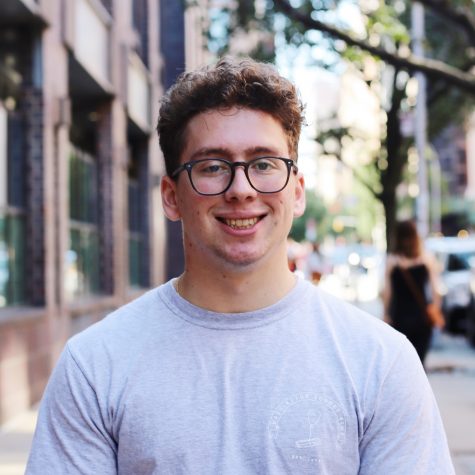Don’t Censor Lil Yachty
March 19, 2018
While working out in the NYU Palladium Gym, I usually supply my own music and headphones but sometimes forget these essentials, and on those occasions yearn for sounds other than my workout-induced huffing and puffing. The gym music varies depending on who is working that day, but is often composed of rap, the quintessential “pump up” music. On one occasion, I heard something odd in the music that made me stop mid-rep: an added bleep in place of the word “Columbine” in the song “Broccoli” by D.R.A.M. featuring Lil Yachty.
I found this surprising, as although I am used to the commonly censored curse words, I had never heard a word like “Columbine,” which in most contexts would not be considered offensive, be censored. From an emotional standpoint, I can understand why someone would want to censor it. The word is used in an offensive way, with the exact line being “N—- touch my gang we gon’ turn this sh-t to Columbine.” With the line potentially disrespecting the victims of the Columbine massacre and minimizing the issue of school shootings — a topic that is extremely sensitive in the current political and social climate — it is understandable that some may wish the word to be cut out. However, I believe this to be problematic in practice. Censoring a word due to its subjective offensiveness unnecessarily modifies the message of the art it is found in, as well as the art as a whole.
Many people felt similarly, as fans reacted to censorship by streaming services upon the release of “Broccoli” with outrage that resulted in a reversal of the censorship. However, some versions of the song which censor “Columbine” still remain, so it is important to questionwhether this is good or bad and the reasoning for both arguments.
Those who advocate for the censorship of “Broccoli” may cite its insensitivity. In the song, Lil Yachty uses the idea of a school shooting as a threat. This response and subsequent push to censor the word is innately emotional. But is preventing that emotion worth the potential cost of censorship?
This debate is not only about the censorship of the word “Columbine.” It brings up a larger question of whether or not censorship of any offensive words is acceptable. If we were to allow censorship in this case, it could justify the censorship of other words or phrases that offend, disrespect or make people feel uncomfortable. Censorship of this nature could result in countless works being altered and a society with mechanisms reminiscent of the “thought-police” depicted in George Orwell’s “1984.”
Censored works are inherently different from their un-censored counterparts. Besides the obvious difference in language, the potential meaning or message of a piece changes when the words used to deliver it are changed. Censorship also limits conversation and thought concerning the censored topics. Yet no subject matters should be ignored simply due to their offensive nature. If anything, topics that cause offense or discomfort should be talked about more, as these emotions are often an indicator of some greater problem or conflict.
As a community, NYU should not partake in the censorship of ideas, as this leads to a disfiguration of the art and its message, and also limits conversation concerning topics which are often necessary to discuss.
A version of this appeared in the Monday, March 19 print edition. Email Victor Porcelli at [email protected].




























































































































































